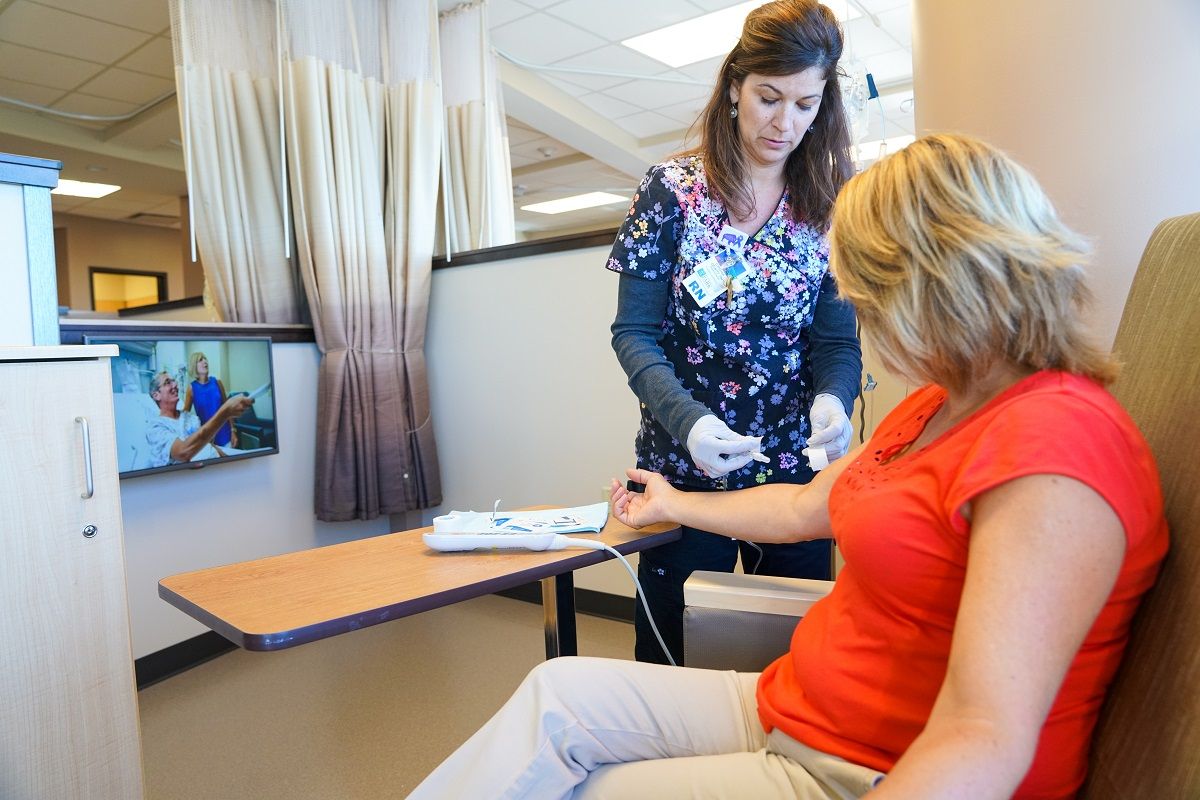Chemotherapy kills cancer cells as well as normal cells. When normal cells are killed, side effects can occur. The severity of side effects differs between individuals and is also related to the drugs given. The following are just a few of the most common side effects, which can occur. Talk to your care team or oncology pharmacist about what to expect with the specific drugs that will be used in your treatment.
Alopecia/hair loss
Some chemotherapy drugs can cause your hair to thin or fall out completely. Occasionally this can also affect the hair on your face, chest, armpits, groin, arms and legs. The important fact is that your hair will grow back after the chemotherapy is completed. In fact, it may start to grow back while you are still receiving treatment. The wig, scarf & hat boutique, located inside Roswell Park, provides free, brand new wigs for those who are undergoing cancer therapy, and you don't need to be a patient at Roswell Park to receive this service.
Nausea/vomiting
Chemotherapy drugs can cause nausea and/or vomiting. The degree of these symptoms depends on the chemotherapy drug(s) and the individual. Some chemotherapy agents cause these symptoms more than others; the more likely that a medication will cause these side effects, the more anti-nausea medications your doctor will give you. Often anti-nausea drugs are given intravenously just before the chemotherapy. You will be given a prescription(s) to fill so that you have anti-nausea pills at home to be taken if needed. These medications have improved and are now very effective.
Lowered blood counts
Blood counts refers to the number of white blood cells (WBC), number of platelets and the amount of hemoglobin found in your circulating blood. While on chemotherapy, these counts are checked frequently.
- White blood cells fight infection. If these are decreased, your ability to fight off infection is impaired. It is extremely important that you notify your physician immediately if you develop a fever of 100.4 or higher, have shaking chills or have signs of an infection. Your chemotherapy may be held if your white count is too low. Your doctor may put you on a medication that stimulates white blood cells to grow. You will asked to avoid Tylenol, Aspirin and Ibuprofen as these can all mask a fever. Be sure to check with your doctor before taking any of these.
- Platelets help your blood to clot. If these are decreased you could have trouble with bleeding if you cut yourself or had other trauma. Your chemotherapy may be held if your platelet count is too low.
- Hemoglobin (Hgb) carries oxygen on your red blood cells to the cells in your body. A low hemoglobin is a reflection of having a low number of red blood cells (RBC) in your blood. If there are fewer RBC’s then less hemoglobin will be available to carry oxygen to body tissues. This can cause symptoms such as increased shortness of breath, chest pain, fatigue and dizziness (due to low blood pressure). You should report any of these symptoms to your physician. If these counts go too low your doctor may give you a blood transfusion and/or put you on a medication to stimulate red blood cell production.
Numbness/tingling
Also known as peripheral neuropathy, these symptoms occur in the finger-tips and toes, but could progress to the hands and feet. Some chemotherapy drugs cause nerve damage; this leads to the sensation of tingling and/or numbness. If this were to become very significant (i.e. you were tripping on your feet because you could not feel them) your doctor may change the chemotherapy drugs you are getting. These symptoms may be much more pronounced in a diabetic because they may already have some nerve damage. Be sure to notify your doctor if you experience these symptoms.
Flu-like symptoms
Some chemotherapy drugs can cause muscle or joint aching, low-grade fever and fatigue. This usually occurs the first few days after you receive the chemotherapy and only lasts two to three days.
